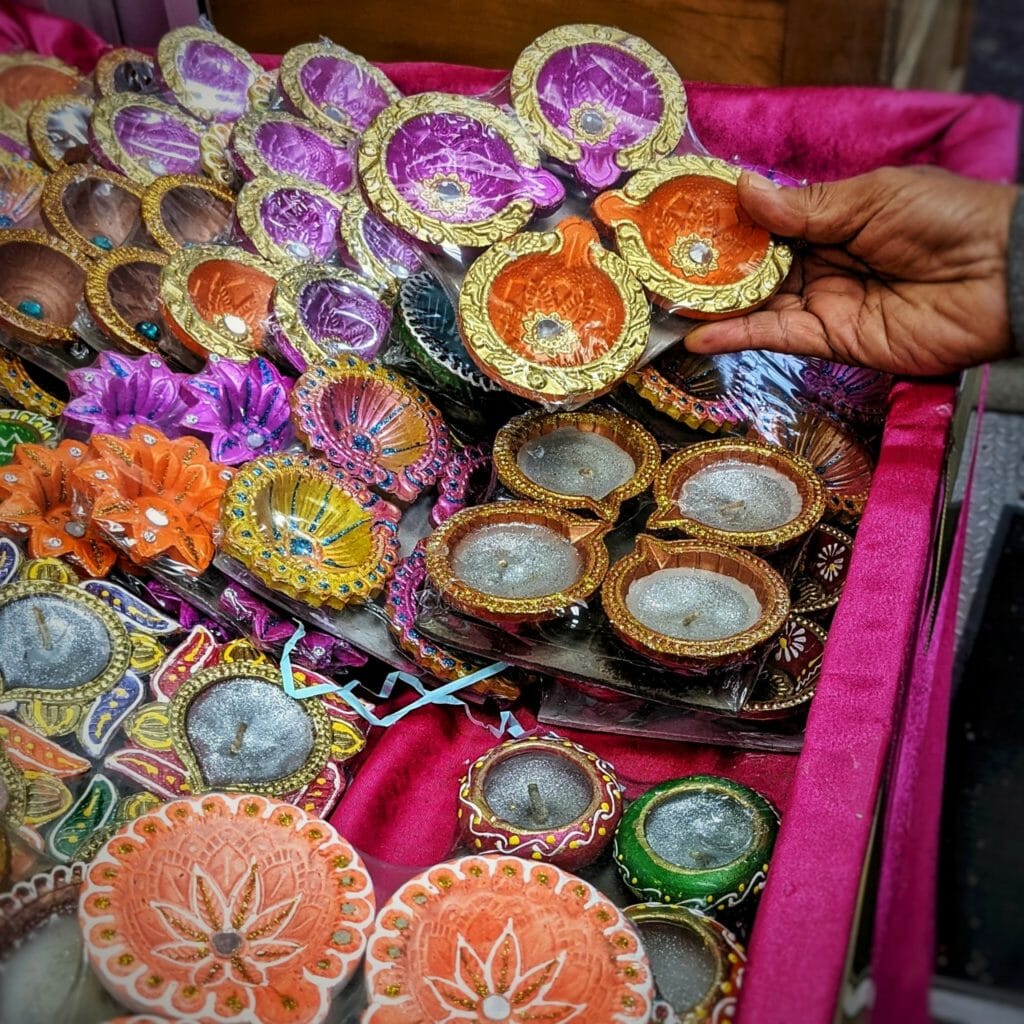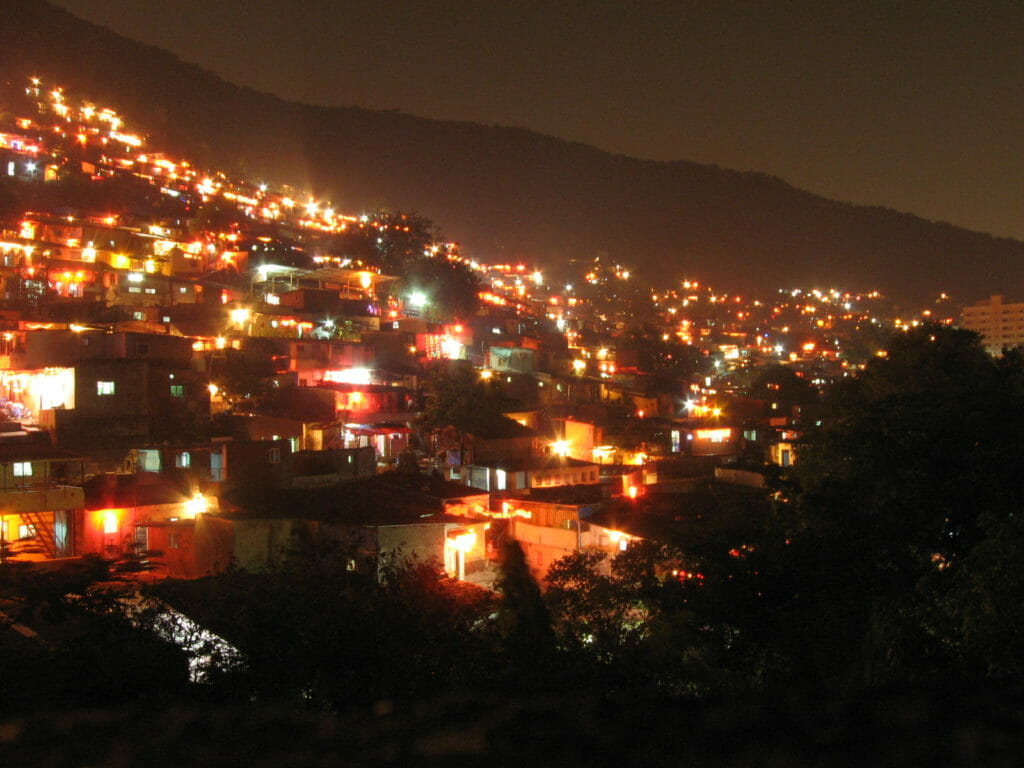The festival season is almost synonymous with the sale season. It’s an excuse to splurge, buy and gift. Advertisements and discounts attract us to many such offers and our shopping carts, virtual and otherwise overflow with binge buys. But this rampant consumerism in festivals is incredibly damaging to our environment, increasing the burden on our resources, and adding to the mounting levels of waste and pollution.
With Diwali around the corner, Citizen Matters was joined by two enthusiastic and spirited environmentalists for a panel discussion held on Instagram live, titled ‘Conscious consumers: Celebrating in a sustainable and responsible way’ on October 18th, 6 pm.
Pooja Domadia, a former journalist and eco-entrepreneur, and Ananya Pathak, a high school student joined us for this discussion. Both of them are volunteers for Fridays for Future (FFF), Mumbai, an autonomous, global youth-led movement, started by environmental activist Greta Thunberg. We discussed the relationship between climate change, climate consciousness and consumerism in festivals.
The productive conversation resulted in fresh ideas and perspectives, moving away from festivals saturated with consumerism to environmentally friendly, community-driven celebrations.
Realities of consumerism in festivals
As a diverse country, with many traditions, cultures, religions and festivals, we have many different ways of celebrating. But one thing is common: how we celebrate has changed dramatically in the span of a few generations.
“The stories that I hear from my grandparents is that all the family members would gather around in the kitchen and make everything from the farsan to the ladoos at home,” said Ananya. “That’s something that I didn’t have while growing up,” she added.
Instead, she suggested, the trend has shifted to buying fancy imported foods with elaborate packaging, whether that’s nuts or chocolates. What would have had a prized possession once upon a time, say, a beautiful box designed carefully by an artist, has become commonplace and devalued.
“Consumerism has become central to all festivals these days,” echoed Pooja. While Diwali used to be the one time in a year families would shop, it is now just another reason to buy new clothes, upgrade to the latest gadget, etc. The culture of consumerism in festivals has fused with the meaning of celebration. “Buying new things has become a sign of prosperity and that’s taking a toll on all of us,” adds Pooja.

Read more: A guide to partying the low-waste way
Impact of consumerism in festivals
This shift has led to a culture of excess. Corporate gifting culture means another fake plant or scented candle in your collection. A gift hamper comes with an outer layer of plastic, a ribbon, a basket and plastic packaging on all the items within. “There’s so much pressure on everything to look good,” said Pooja, “which means adding a lot of unnecessary things.”
Gifting, reminded Ananya, is not an inherent traditional part of festivals. And as consumerism in festivals has come to dominate, gifting – a symbol of care and thought – becomes yet another superficial financial display. Much of this, inevitably, end up in the trash.
Part of the fallout of excessive consumerism in festivals is the waste generated, adding to our already burdened landfills and increasing pollution. But it also masks the act behind our purchases, said Pooja, which is a constant depletion of resources. “We are part of an economic system that keeps telling us more is better. We glamourise the idea of having more, selling more, buying more, and owning way more than we need,” she explained. “But we live in a world with finite resources, and we are talking as if there is no tomorrow. ”
Short of changing the economic system, Ananya brought up each person’s responsibility towards collective differences.
“It falls on every one of us to see how we can contribute via our role in society. I’m a student, so for example, if we’re celebrating Diwali at school, I can talk to the school administration about using fewer lights, because that uses electricity. Or if we can reuse what we use for decoration,” said Ananya, explaining how even children can do their part in making festivals environmentally friendly.

Action items
Pooja and Ananya shared several ideas for those wanting to make the switch to sustainable and minimalistic ways of celebrating. Here’s a compilation of all their tips for low-waste event plans:
- Instead of gifting just for the sake of gifting, ask people what they need – and let them know what you need, if anything. Chances are, they will appreciate it.
- Request for people’s quality time for a meeting/experience instead of adding to your pile of material objects.
- Prioritise local ingredients and products even outside the festival season, so as to reduce your carbon footprint.
- Ask your grandparents how they celebrated festivals, and try to replicate their eco-friendly aspects.
- Pick up the phone to invite people for celebrations, instead of sending a physical invite that will end up at the raddi. You cannot replicate the warmth of conversation with an artefact, however pretty.
- Repeat, borrow or rent fancy clothes for the next occasion. Expensive and uncomfortable clothes tend not to get much wear, so think again before buying another set.
- Create a culture of sharing with your neighbours. This way, any extra utensils or you need for a get-together are just a few doors away. (Renting options are available too.)
- If you happen to buy food from outside, forgo the disposable containers and use your boxes and dabbas instead.
- DIY or reuse what you already own for decorations. Don’t fall for the newest shiny plastic bunting that’s caught your eye.
- Involve others in preparing and planning events. It will reduce the burden on a single person, combine resources and ideas, and be truly community-driven/have a community spirit.
- Organise fun and physical activities for children, so there’s no need to fall back on firecrackers. Rangoli, dance, sports and games are a few options for your taking.
- Use grains like rajma, sabudana and colours available in your kitchen for rangolis. Wash and reuse the grains.
- Use compassion and empathy for others to reason against firecrackers, especially with children.
- Segregate and compost your waste, with and without occasion.
The environmental movement is in great need of foot soldiers, ready to make some compromises and changes for the greater good. If you do act upon any of the tips above or celebrate the upcoming festivals in an environmentally friendly manner, tag @citizenmatters on social media with #zerowasteeventwithCM.
Watch the panel discussion on moving away from consumerism in festivals to celebrating in a sustainable and responsible way below.